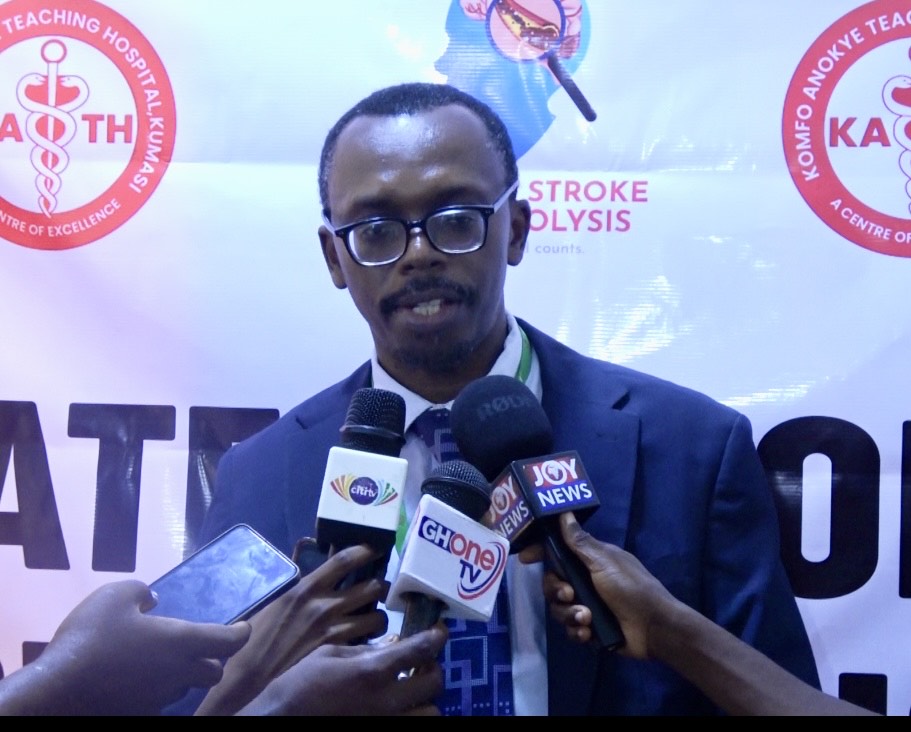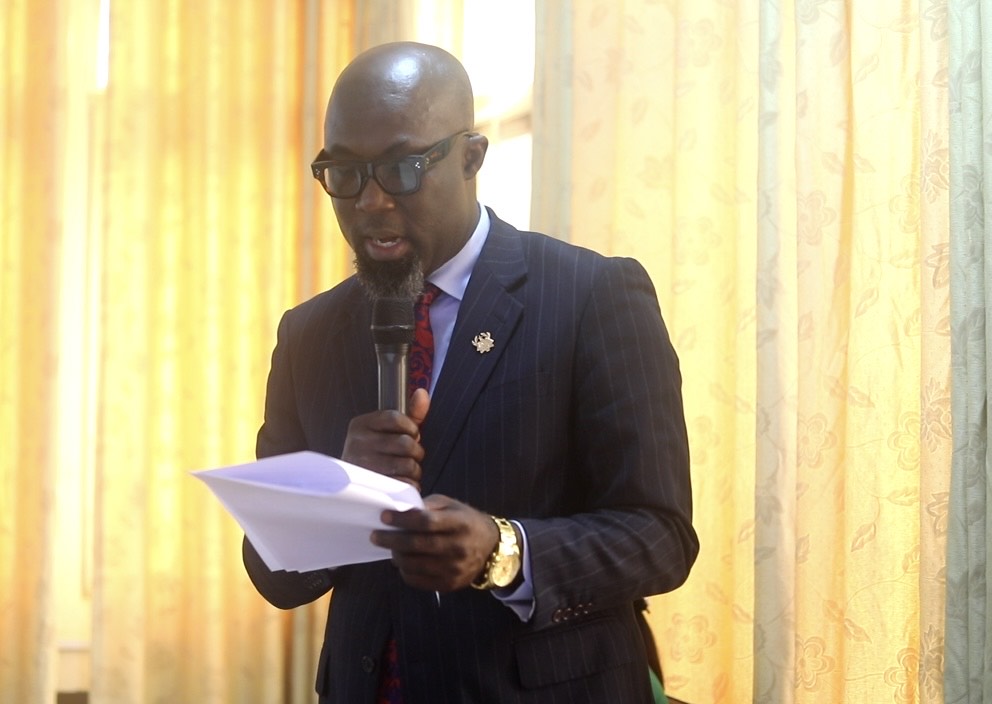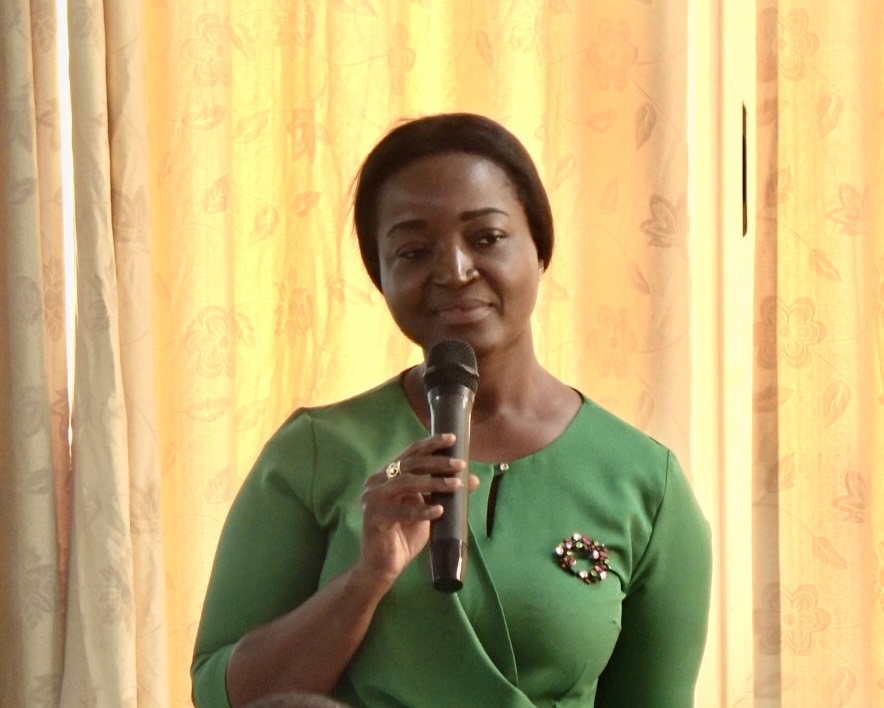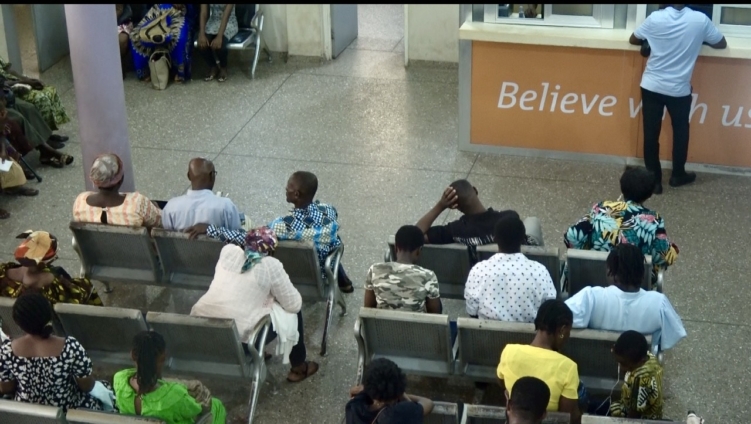The Komfo Anokye Teaching Hospital is admitting over one thousand stroke patients every year.
The figure is in contrast to some 200 cases recorded 40 years ago.
A time-bound and minimally damaged treatment has been launched at the hospital to improve stroke treatment.
A decreased blood flow stroke occurs when the blood supply to part of the brain is blocked or reduced by a blood clot.

Stroke has been noted as a top rampant medical condition being recorded in the Komfo Anokye Teaching Hospital.
Treatment remains a challenge while experts explore contemporary treatment methods.
The drugs and medication previously used in stroke treatment did not dissolve blood clots, hence, leaving patients with a permanent disability.
Active stroke thrombolysis will administer clot-busting drugs and medication to dissolve blood clots in the brain during an acute ischemic stroke.
Thrombolysis services will incorporate thrombolysis into routine stroke care at Komfo Anokye (KATH).
At the launch of the implementation of thrombolysis services, Consultant Neurologist at KATH, Dr. Fred Stephen Sarfo said the new method is revolutionary.

“That cloth is what the treatment [active Stroke thrombolysis] seeks to dissolve to restore blood flow to the brain, be able to talk again, and in essence, cure the stroke. Unlike in the past when there was not a proper cure for it. This is revolutionary and will change the stroke treatment landscape.
“This one almost cures the stroke so the person doesn't have to deal with paralysis and disability. The approximate cost is about 15 thousand cedis for treatment to be given and highly standardized and subsided at the Komfo Anokye," he said.
Chief Executive of the Komfo Anokye Teaching Hospital, Prof. Dr. Otchere Addai-Mensah says the hospital’s new strategy is to optimise the delivery of tertiary healthcare.

“In line with the hospital’s new strategy to optimize the delivery of tertiary healthcare through innovation and research, management has supported the KATH Multidisciplinary Stroke Thrombolysis Team to commence the delivery of this special service to save stroke patients brought in time to this hospital from suffering the worst possible impact of the disease.
“I will therefore, enjoin all stakeholders especially the peripheral hospitals and indeed members of the general public to act with speed in getting stroke patients quickly admitted at KATH for this service,” he said.
Deputy Regional Director of Clinic Care, Ghana Health Service, Rita Larsen-Reindolf is enjoining stakeholders to heighten public education on stroke.

“Awareness can be championed by stakeholders. Ghana's health service is ready to take up the challenge and support the new step of KATH. For the immediate terms, awareness and public education is what we can capitalize on,” she said.
Latest Stories
-
Election security rests solely with the police – Central Regional Police Command
27 seconds -
NCCE engages political youth activists at Kumbungu on tolerance
58 seconds -
‘In Mahama’s era students lacked chalk, but are now receiving tablets’ – Bawumia
11 mins -
Project commissioning not a ploy to attract votes – Oppong Nkrumah
12 mins -
CBG records GH¢1bn revenue in Q3
15 mins -
Mahama vows to create an agro-processing zone in Afram Plains
29 mins -
Political parties should plan for losses, not just wins – IGP advises
30 mins -
524 Diasporan Africans granted Ghanaian citizenship in ceremony
32 mins -
Mahama urges Afram Plains North residents to avoid ‘skirt and blouse’ voting
34 mins -
Asantehene receives more 19th century gold ornament and regalia
41 mins -
Hohoe Ghana Blind Union organises training for members ahead of Election 2024
47 mins -
Alan Kyerematen reveals his future plans for Ghanaian Health professionals
48 mins -
AAIN empowers women and small enterprises in Upper East Region through SHINE project
49 mins -
Akufo-Addo leads nationwide commissioning of 80 educational projects
56 mins -
Ghana and Seychelles strengthen bilateral ties with focus on key sectors
1 hour

